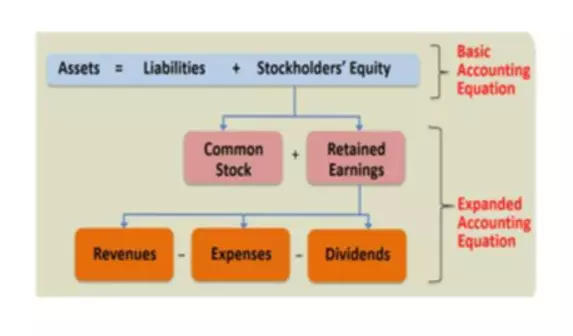What is Cloud Computing in Accounting? by Vedant Dwivedi DataDrivenInvestor
Content

Moving data, applications and platforms to the cloud may create substantial business benefits because companies may be able to reduce capital expense outlays while maintaining a more flexible IT environment. However, companies should consider the financial reporting implications as well as broader tax and IT considerations as a result of the new accounting guidance. The audit client will be the primary source for obtaining an understanding of the current state of the cloud.
What is cloud computing in simple terms?
Simply put, cloud computing is the delivery of computing services—including servers, storage, databases, networking, software, analytics, and intelligence—over the Internet (“the cloud”) to offer faster innovation, flexible resources, and economies of scale.
This accounting system is the foundation of NetSuite’s unified cloud platform, which includes complementary modules for planning and budgeting, revenue recognition, advanced billing and more. Whether you’re a growing business or a global corporation, moving to a cloud-based accounting software system can increase efficiency and provide real-time visibility into financial performance. NetSuite financial management software automates everyday transactions, accelerates the financial close process, and helps ensure compliance with tax regulations and accounting standards. Because the software is cloud-based, you don’t need to invest in or manage on-premises hardware and software.
Accounting Trends To Expect In 2023: Cloud Computing, Automation, And More
In this post, we’ll take a look at some of the benefits specific to accounting firms using cloud computing. MYOB – One of the key providers in Australia, MYOB is designed for small businesses that want a streamlined accounting solution with all the benefits of the cloud. Sage Business Cloud Accounting – Bigger businesses will like the scalable accounting of Sage’s cloud platform, with all the business functionality of their desktop version. Third-party apps are available, but extra Sage modules will add to your costs and budget. Paying your taxes is far quicker and simpler through a cloud accounting platform.
In cloud computing, users access software applications remotely through the Internet or other network via a cloud application service provider. The profession began digitizing – moving from manual processes to digital forms – 40 years ago. Digitalizing involves doing things in new and better ways that drive improved outcomes. Digital transformation leverages all the digitalization that has occurred to redefine how we create synergy between people, technology and processes, and also how we create services that are relevant today and will be in the future. Digital transformation in auditing means utilizing cloud technology, working remotely and incorporating AI and data analytics to deliver more efficient and insightful results. If you would like to get a taste of the time and cost savings benefits the cloud can offer, try a free trial of Canopy’s services. You’ll see for yourself why so many accounting professionals are making the switch to cloud-based accounting software.
The Dark Side of the Cloud
Security threats exist in both the desktop and cloud environments, because hackers take advantage of any vulnerability in a system. But the large networks that maintain cloud-based accounting software are continually monitored for intrusions, and often these systems are built with high security as the primary component. It may seem like a remote environment is not as secure as a desktop, but that is not necessarily the case. With a desktop system, like those stored on a laptop, the equipment can be lost, hacked or stolen. Cloud data is stored on a larger, remote network and the data is continually backed-up.

Cloud accounting is primarily performed through the use of pre-programmed software, removing the presence of a human apart from that of the client. Cloud-based accounting does not care if the user prefers an Android, PC or Apple-based operating system. The software runs off the web browser, and like any website, the browser adapts to the particular operating system. That makes sharing information easier, because there is no concerns about whether the program will run on a particular type of device. QuickBooks, offered by Intuit, occupies about 66.58% of the market between its on-premises and online versions. Versions designed for freelancers as well as for small and medium businesses are available.
When should your company use Cloud Accounting?
With a https://www.bookstime.com/ system, the work of hosting and updating your accounting software is taken on by the provider. You move your books online and then access the software over the internet from a browser, paying for the service on a subscription basis. There’s no need to buy or install any software on computers in your office, and cloud software is less expensive to implement and deploy to multiple locations. Cloud accounting is no longer just the future — it’s something businesses need to adopt now to avoid falling behind and operating at a competitive disadvantage. The benefits of using a cloud accounting system are similar to those of other cloud software, but are even more crucial because financials form the basis for everything a business does.
- Therefore, instead of waiting for weeks or months for the latest iteration, cloud accounting software provides businesses with endless possibilities and unparalleled agility.
- Rather than buying different software for different functions, many cloud applications offer several different accounting functions in the same place.
- On the other hand, hybrid cloud accounting solutions may still have a perpetual license typical of on-premises systems.
- With the right software technology, you will have access to your data as long as you have an online connection despite your location.
- Every NFT is information kept in a distributed database and available for purchase or trade.
- Cloud-based accounting solutions, on the other hand, store businesses’ data in the cloud.
- A bank feed is the direct integration of your internet banking with your cloud accounting platform, allowing you to access all your banking data.
Accounting is one of the key components of an enterprise resource planning system. An ERP platform unifies essential business functions like accounting, financial planning and budgeting, inventory and order management, human resources , customer relationship management and more on a central database. This database connects modules designed to manage different aspects of the organization and thus supports cross-functional processes, many of which need to tie back to accounting. Payroll, purchase orders and the value of inventory on hand, for example, all need to be recorded in the accounting system as they happen. Programs like Peachtree and Microsoft Excel brought calculations and accounting to personal computers. Intuit advanced the process with the Quicken and Quick Books line of software. The idea of cloud-based accounting, where the program and data are housed on a separate computer, started in the late 1990s with NetSuite.
Future of Cloud Accounting
For CPA firms and their clients, this cloud disruption requires a what-can-go-wrong analysis. Some organizations are adopting a cloud-first strategy for new systems or when replacing systems. Popular cloud deployment models include private clouds, public clouds, hybrid clouds, and community clouds;Exhibit 1defines each model. Popular CSP cloud services include Infrastructure as a Service , Software as a Service , and Platform as a Service ;Exhibit 2defines each service. Pay-as-you-go (i.e., when customers are billed based on their levels of usage) is a popular pricing model.
Nearly 45 years ago, cloud accounting vendors released the first accounting software and forever changed how accountants do their jobs. Systems that ran on computers replaced paper ledgers and the basic tools that helped bookkeepers crunch numbers. It lets you use computers, laptops, tablets, smartphones and other devices to access all your business information – seamlessly, securely and in real time. This may be considered a disadvantage to certain clients or in some situations, as software can occasionally malfunction, potentially costing the client corporation or firm in terms of time and money. Pacific Crest Group provides vital services to progressive, forward-thinking business owners to create successful strategies for growth and efficiency in their organizations. Today’s accounting professionals cannot succeed without a strong internet presence.
